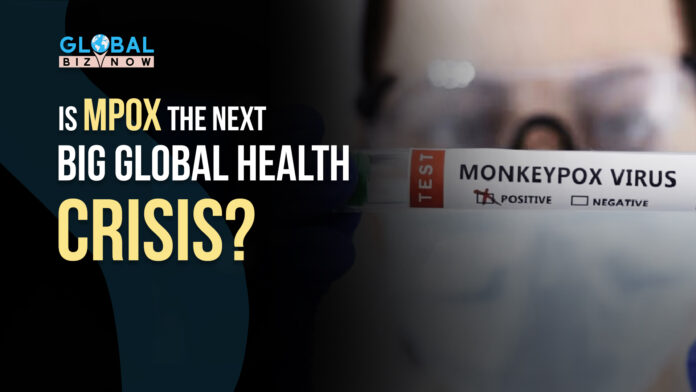Recent outbreaks of mpox in Africa and Europe have put global health authorities on high alert, with the World Health Organization (WHO) declaring the situation a global emergency. The virus, which has been largely contained to parts of Africa, is now surfacing in countries like Sweden, prompting concerns about its potential to spread.
Outbreaks and Global Response
The WHO has identified the ongoing mpox outbreaks, particularly in the Democratic Republic of Congo and other African nations, as a global emergency that demands urgent action. This declaration highlights the need for swift measures to prevent further transmission of the virus.
Sweden recently reported its first case of a new form of mpox, previously only seen in Africa, found in a traveler. This has led European health authorities to caution that more imported cases are likely, though the risk of widespread local outbreaks remains low.
Will Mpox Trigger Another Pandemic?
Despite the alarming headlines, experts agree that another pandemic is unlikely. Pandemics, such as the recent swine flu and COVID-19, are typically driven by airborne viruses that spread rapidly, often through asymptomatic individuals. Mpox, on the other hand, spreads much more slowly.
To stay safe, health experts advise avoiding close physical contact with individuals showing mpox symptoms, not sharing personal items like utensils or bedding with them, and maintaining good hygiene practices, such as regular hand-washing.
On Friday, Europe’s Centre for Disease Prevention and Control stated that while more imported cases of mpox from Africa are “highly likely,” the chances of local outbreaks in Europe are very low. Scientists echo this sentiment, noting that the risk to the general population in countries without ongoing mpox outbreaks is minimal.
How Does Mpox Compare to COVID-19?
Mpox is markedly different from COVID-19, particularly in its rate of transmission. Shortly after the coronavirus was identified in China, the number of cases skyrocketed from several hundred to several thousand in just one week in January 2020. By March 2020, the WHO had declared COVID-19 a pandemic, with over 126,000 infections and 4,600 deaths worldwide—just three months after the virus was first detected.
In contrast, mpox has taken much longer to spread. Since the virus resurfaced in 2022, there have been nearly 100,000 infections globally, with about 200 deaths, according to WHO data. Unlike the early days of the COVID-19 pandemic, vaccines and treatments are already available for mpox, significantly reducing the risk of widespread transmission.
“We have what we need to stop mpox,” said Dr. Chris Beyrer, director of Duke University’s Global Health Institute. “This is not the same situation we faced during COVID when there was no vaccine and no antivirals.”
Containing the Mpox Outbreaks: The Road Ahead
The timeline for stopping the current mpox outbreaks remains uncertain. The 2022 outbreak, which affected more than 70 countries, was slowed within months due to effective vaccination programs and the availability of antiviral drugs in wealthy nations.
Currently, the majority of mpox cases are in Africa, with 96% of these cases and deaths occurring in the Democratic Republic of Congo. The country’s health system is under severe strain from other ongoing health crises, such as malnutrition, cholera, and measles. Despite requests for 4 million vaccines, Congo has yet to receive any.
Although the WHO declared mpox a global emergency in 2022, Africa has received minimal support in terms of vaccines and treatments. Dr. Beyrer emphasized the global importance of investing now to halt the outbreaks in Africa, suggesting that early intervention could prevent the virus from spreading further.
Mpox: Low Pandemic Risk, Urgent Action Needed
While the global health community is right to remain vigilant, the likelihood of mpox triggering another pandemic is low. With existing vaccines and treatments, along with proactive public health measures, the current outbreaks can be managed. However, the situation in Africa, particularly in Congo, requires urgent attention to prevent further escalation. Investing in healthcare resources for the most affected regions will be crucial in stopping the virus and preventing future outbreaks.
To Read More Articles: Click here.



